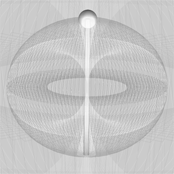




































What am I?
The question what am I? is mostly open for us in terms of the roles we play. Possible answers to the question could be a teacher, an employee, a father, a son, an aspiring filmmaker, and so on. Implied in each of those answers will be prescriptions about how one ought to conduct oneself, and the norms that govern those prescriptions will be primarily tied to either the culture of the applicable domain or one's overall culture. Another possible answer, also bearing normative prescriptions regarding behavior, is human being. This, of course, applies more widely and less immediately than the previously mentioned possible answers, and so the acknowledgment of one's humanity will more likely evoke explicit questions about what that means. What does it mean to be human? Studying the humanities provides us with no shortage of enriching interpretations regarding this question. Yet we can zoom out even further and answer I'm a being that experiences an existence.
While the first ways of asking and answering the question what am I? mostly occur tacilty/unconsicously—that is, without making the question explicit—the latter two ways seem to demand our explicit attention whenever we ask them. Also, while the former ways of answering are clearly very important to us—that is, we most certainly care what it means to be a teacher, employee, father, son, or aspiring filmmaker (should one happen to be one)—it's less obvious how the latter questions regarding humanity and experiencing being are questions relevant to how our lives are meaningful.
Regarding the question of humanity, this is where the question what am I? definitely transcends one's lifetime. The question what does it mean to be human? (let alone the question what does it mean to be a good human?) situates us within a context that spans the lifetime of our species. Moreover, the question regarding what it means to be an experiencing being places us in a context that spans the duration of life itself, beginning with life on Earth, but possibly transcending even that. How are these questions relevant to us? How do we already care about them? Well, for those of us who don't have the luxury of contemplating the questions—that is, for those of us who won't be reading this since they are exhaustively preoccupied with tasks related to survival—these issues become important ways to reconcile ourselves with hardships beyond our control by placing ourselves in grander, often mythic, narratives about what life means. For those of us who do have the luxury of asking, we still can't help but care. Perhaps we intuitively understand how the more immediate roles we play are as pieces in a larger puzzle, where humanity is that larger puzzle. And perhaps we see how human life is but one piece in a larger puzzle yet—that of life on Earth, together with all other forms of life. And to fully understand and truly appreciate the small pieces that we immediately occupy is to see how we fit into those larger pictures. Whether we realize it or not, our cares and concerns are already tied to the cares and concerns of any being capable to experience. So, what does that mean?
